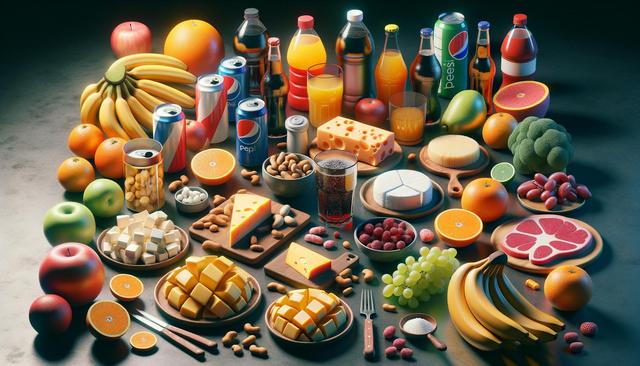Why Diet Matters for Kidney Health
When the kidneys are not functioning properly, they struggle to remove waste and excess fluids from the body. This makes diet a critical part of managing kidney disease. Certain foods and drinks can place additional stress on the kidneys or lead to dangerous imbalances in electrolytes, minerals, and fluids. By avoiding specific items, kidney patients can help maintain a more stable internal environment, minimize further damage, and potentially slow the progression of the disease.
One of the main concerns for individuals with compromised kidney function is the buildup of waste products like urea, potassium, and phosphorus. These substances are normally filtered out by healthy kidneys but can accumulate when kidney performance declines. Diet adjustments often aim to reduce the intake of these compounds to avoid complications such as hyperkalemia, bone disorders, and cardiovascular issues.
High-Sodium Foods to Limit or Eliminate
Sodium control is one of the most important dietary restrictions for kidney patients. Excess sodium can increase blood pressure and cause fluid retention, which adds strain on the kidneys and heart. Unfortunately, sodium is hidden in many processed and packaged foods, making it essential to read labels and cook at home when possible.
Common high-sodium foods to avoid include:
- Processed meats like sausages, deli slices, and bacon
- Canned soups and vegetables with added salt
- Frozen meals and snacks
- Fast food and restaurant dishes
- Snack foods such as chips, pretzels, and salted nuts
Reducing sodium not only helps control fluid balance but also supports better blood pressure management, which is crucial for kidney health.
Limiting High-Potassium Foods
Potassium is a mineral that supports nerve and muscle function, but when kidneys are impaired, excess potassium can build up in the blood, leading to dangerous heart rhythms. While potassium is found in many nutritious foods, kidney patients need to be mindful of their intake to avoid hyperkalemia.
High-potassium foods to be cautious with include:
- Bananas, oranges, and avocados
- Potatoes, sweet potatoes, and tomatoes
- Spinach and other leafy greens (especially cooked)
- Milk, yogurt, and other dairy products
- Salt substitutes that contain potassium chloride
Working with a dietitian can help individuals find lower-potassium alternatives and develop a meal plan that meets nutritional needs without overloading the kidneys.
Controlling Phosphorus Intake
In people with kidney disease, phosphorus can accumulate in the blood, leading to bone and cardiovascular problems. Many processed foods and beverages contain added phosphorus in the form of preservatives, which are easily absorbed in the body and harder to eliminate when kidney function is reduced.
Foods high in phosphorus that should be limited include:
- Cola beverages and dark sodas
- Processed cheese and cheese spreads
- Organ meats such as liver
- Beans, lentils, and nuts (especially in large quantities)
- Packaged baked goods with phosphate additives
Phosphorus binders may be prescribed in some cases, but dietary control remains a key strategy in managing phosphorus levels effectively.
Fluids and Beverages to Watch
Depending on the stage of kidney disease and individual fluid balance, some patients may need to monitor or limit their fluid intake. Excess fluid can lead to swelling, high blood pressure, and strain on the heart and lungs. Beverages also contribute to mineral intake, which can affect kidney function.
Drinks to avoid or limit include:
- Alcohol, which can increase blood pressure and cause dehydration
- Dark-colored soft drinks due to their phosphorus content
- Caffeinated beverages, which may affect fluid balance and blood pressure
- Fruit juices high in potassium
- Sports drinks that contain added electrolytes
Plain water is typically the safest choice, but fluid allowances vary per individual. Consulting with a healthcare provider ensures that the right balance is maintained for optimal health outcomes.
Conclusion: Supporting Kidney Health Through Diet
For individuals managing kidney disease, making informed dietary choices is a powerful tool in maintaining health and slowing disease progression. Avoiding foods and drinks high in sodium, potassium, phosphorus, and certain fluids can ease the burden on compromised kidneys and reduce the risk of complications. While dietary restrictions can feel overwhelming at first, working with healthcare professionals and dietitians can help create a personalized, manageable eating plan. Staying informed and proactive with food choices is an essential step in supporting long-term kidney health.


